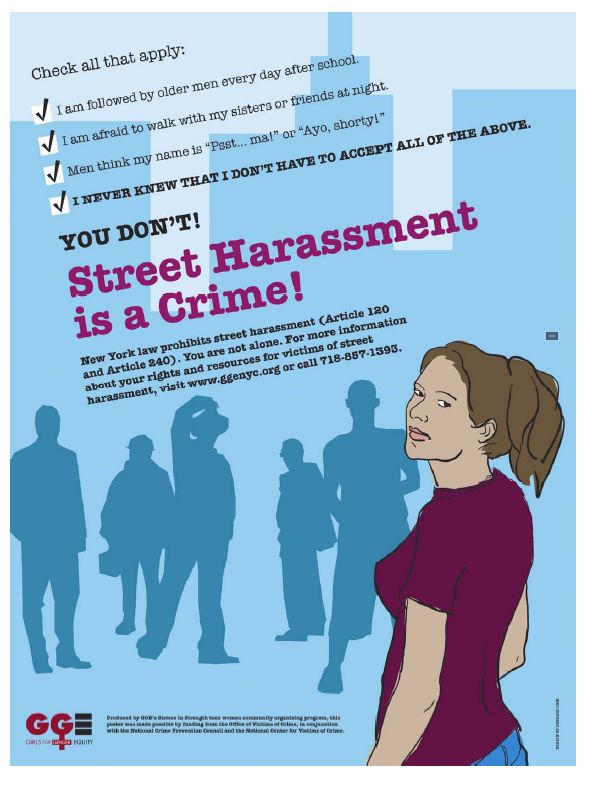Report on Recent Advances in Workplace Gender Equality and Labor Rights
Introduction: Landmark Legal Precedent and its Alignment with Sustainable Development Goals
A November 2023 federal jury verdict in the case of Robinson v. Canal Productions represents a significant milestone in the pursuit of Sustainable Development Goal 5 (Gender Equality) and SDG 8 (Decent Work and Economic Growth). The jury awarded $1.2 million to Graham Chase Robinson, a former assistant to actor Robert De Niro, in a gender discrimination and retaliation lawsuit. This high-profile case underscores the critical importance of holding institutions accountable, a key tenet of SDG 16 (Peace, Justice and Strong Institutions). The verdict serves as a powerful affirmation that gender-based mistreatment and harassment in the workplace are violations of fundamental labor rights, reinforcing the global objective to eliminate all forms of discrimination and violence against women.
The legal action, spearheaded by the national labor and employment law firm Sanford Heisler Sharp McKnight, exemplifies the role of the justice system in enforcing standards of decent work. By securing a verdict that vindicated the plaintiff, the firm demonstrated how legal advocacy can ensure accountability and contribute to systemic change, aligning with the targets of SDG 16 to ensure equal access to justice for all.
Policy Reforms Strengthening SDG Commitments in Washington, D.C.
Advancing Pay Equity to Meet SDG 8 and SDG 10
Washington, D.C. has enacted significant legislative reforms aimed at closing the gender pay gap, directly addressing targets within SDG 8.5 (equal pay for work of equal value) and SDG 10 (Reduced Inequalities). The Wage Transparency Omnibus Amendment Act, effective in 2024, mandates several key actions by employers to foster an equitable economic environment:
- Salary Range Disclosure: Job postings must include the minimum and maximum salary or hourly pay, promoting transparency and fair negotiation.
- Benefit Information: Employers are required to disclose healthcare and other benefits to candidates prior to the first interview.
- Prohibition of Salary History Inquiries: The practice of asking for past compensation, which perpetuates historical wage disparities for women, is now banned.
- Employee Rights Notification: Workplaces must inform employees of their rights under this pay transparency law.
These measures are designed to dismantle systemic barriers that contribute to gender-based pay inequality, empowering women and minority candidates and moving the District closer to the goals of full, productive employment and decent work for all.
Enhancing Workplace Safety in Line with SDG 5 and SDG 8
The District has also intensified efforts to combat workplace sexual harassment, a direct contribution to SDG 5.2 (eliminate all forms of violence against all women and girls) and SDG 8.8 (protect labor rights and promote safe and secure working environments). Under the Tipped Wage Workers Fairness Amendment Act, specific obligations are placed on businesses with tipped employees:
- Mandatory sexual harassment training for all employees, managers, and owners.
- Establishment of clear, formal procedures for reporting harassment.
- Annual reporting of harassment incident data to the D.C. Office of Human Rights.
By enforcing regular training and transparent reporting, these regulations aim to create safer work environments and ensure that institutions are accountable for preventing and addressing harassment.
National Legislative Momentum for Gender Equality and Decent Work
Federal Actions to Ensure Access to Justice and End Forced Silence
At the national level, recent bipartisan legislation has strengthened protections against workplace misconduct, advancing SDG 16 (Peace, Justice and Strong Institutions). The following acts have removed systemic barriers that previously silenced victims:
- The Ending Forced Arbitration of Sexual Assault and Sexual Harassment Act (2022): This law prohibits employers from enforcing mandatory arbitration clauses for sexual misconduct claims, ensuring victims retain their right to seek justice in court.
- The Speak Out Act (2022): This act prevents the enforcement of pre-dispute nondisclosure agreements (NDAs) that would silence victims of sexual harassment or assault.
These federal laws are pivotal in promoting transparency and accountability, empowering individuals to report misconduct without fear of being silenced, thereby fostering a culture of justice.
The Pregnant Workers Fairness Act: A Milestone for SDG 5 and SDG 8
The Pregnant Workers Fairness Act (PWFA), effective June 2023, marks a significant advancement for gender equality and labor rights. The law guarantees reasonable accommodations for workers affected by pregnancy, childbirth, and related medical conditions. This protection directly supports SDG 5 (Gender Equality) by preventing discrimination and ensures women are not forced to choose between their health and their economic stability, a core principle of SDG 8 (Decent Work). The Equal Employment Opportunity Commission (EEOC) has begun processing claims under this new standard, compelling employers nationwide to adopt more equitable policies.
Conclusion: Toward an Equitable Future Aligned with Global Goals
Assessing the Impact of Legal and Policy Changes
The convergence of legal victories, policy reforms, and cultural shifts is generating measurable progress. A more than 10% increase in workplace discrimination complaints filed with the EEOC in FY2023, reaching over 81,000, suggests a greater awareness of rights and an increased willingness among workers to seek justice, aligning with the aims of SDG 16. Furthermore, record monetary relief recovered for victims indicates stronger enforcement and corporate accountability.
While significant challenges like the gender pay gap and the prevalence of harassment persist, the combined efforts at local and national levels are advancing the United States toward the achievement of key Sustainable Development Goals. Proactive reforms in jurisdictions like Washington, D.C., serve as a model for creating workplaces where equality, safety, and respect are the norm, inching the nation closer to fulfilling its commitment to SDG 5, SDG 8, and SDG 10.
Which SDGs are addressed or connected to the issues highlighted in the article?
SDG 5: Gender Equality
- The article is fundamentally about achieving gender equality in the economic sphere. It discusses legal cases, such as Robinson v. De Niro, and legislative reforms aimed at combating gender discrimination, workplace harassment, and pay inequity, all of which are central to SDG 5. The text explicitly mentions the goal of moving “closer to a culture of true equality at work.”
SDG 8: Decent Work and Economic Growth
- The article focuses on ensuring “decent work” by addressing labor rights and workplace conditions. It details efforts to create “safer work environments,” protect workers from harassment, and ensure fair compensation through pay transparency laws. The discussion of the Pregnant Workers Fairness Act, which ensures women do not have to choose “between a healthy pregnancy and their paycheck,” directly relates to promoting decent and productive employment for all.
SDG 16: Peace, Justice and Strong Institutions
- This goal is addressed through the article’s emphasis on legal frameworks and accountable institutions. It highlights the role of the justice system in holding powerful entities accountable (the Robinson v. De Niro verdict), the function of law firms like Sanford Heisler Sharp McKnight in providing access to justice, and the importance of government bodies like the EEOC and the D.C. Office of Human Rights in enforcing non-discriminatory laws. The passage of federal laws like the “Ending Forced Arbitration of Sexual Assault and Sexual Harassment Act” is a clear example of strengthening institutions to ensure equal access to justice.
What specific targets under those SDGs can be identified based on the article’s content?
SDG 5: Gender Equality
-
Target 5.1: End all forms of discrimination against all women and girls everywhere.
The article directly addresses this target by detailing legal and policy efforts to combat gender discrimination. The Robinson v. De Niro case, which centered on “gender discrimination and retaliation,” and new legislation like the Pregnant Workers Fairness Act (PWFA), which targets a specific form of gender-related discrimination, are prime examples. The article’s concluding hope is that “gender discrimination will increasingly become a relic of the past.” -
Target 5.2: Eliminate all forms of violence against all women and girls in the public and private spheres…
The article’s focus on curbing “workplace sexual harassment” aligns with this target. It describes D.C.’s Tipped Wage Workers Fairness Amendment Act, which mandates sexual harassment training, and federal laws like the “Speak Out Act” and the “Ending Forced Arbitration of Sexual Assault and Sexual Harassment Act,” which are designed to empower victims and hold perpetrators accountable. -
Target 5.5: Ensure women’s full and effective participation and equal opportunities for leadership at all levels of decision-making in political, economic and public life.
This target is supported by the article’s discussion of policies that promote equal opportunity in economic life. D.C.’s pay transparency law, by banning salary history inquiries and requiring salary ranges in job postings, aims to “empower women and minority candidates in negotiations” and break the cycle of pay inequity, thereby fostering equal opportunity for advancement.
SDG 8: Decent Work and Economic Growth
-
Target 8.5: By 2030, achieve full and productive employment and decent work for all women and men… and equal pay for work of equal value.
The article’s detailed coverage of Washington, D.C.’s “pay transparency law” directly relates to the goal of “equal pay for work of equal value.” The law’s requirements are explicitly designed to “close persistent gender pay gaps” and “break the cycle of women being hired and paid based on prior lower wages.” -
Target 8.8: Protect labour rights and promote safe and secure working environments for all workers…
This target is central to the article. It describes multiple legislative actions, such as the PWFA and laws against forced arbitration and non-disclosure agreements, that “protect labour rights.” Furthermore, it highlights policies in D.C. that mandate sexual harassment training and reporting to “foster safer work environments.”
SDG 16: Peace, Justice and Strong Institutions
-
Target 16.3: Promote the rule of law at the national and local levels and ensure equal access to justice for all.
The article illustrates this target by showing how the legal system provides recourse for victims of discrimination. The success of the Robinson lawsuit and the passage of the “Ending Forced Arbitration of Sexual Assault and Sexual Harassment Act,” which prevents claims from being pushed into “secret proceedings” and ensures workers do not give up their “right to sue,” are direct examples of promoting equal access to justice. -
Target 16.B: Promote and enforce non-discriminatory laws and policies for sustainable development.
The entire article is a case study for this target. It documents the creation and enforcement of a wave of non-discriminatory policies at both the local (D.C.’s pay transparency and anti-harassment laws) and national (PWFA, Speak Out Act) levels. The article notes that the EEOC’s recovery of “record amounts of monetary relief for victims” suggests “stronger enforcement.”
Are there any indicators mentioned or implied in the article that can be used to measure progress towards the identified targets?
- Number of workplace discrimination complaints filed: The article explicitly states that the “EEOC received over 81,000 workplace discrimination complaints in FY2023 – a jump of more than 10% from the prior year.” This can serve as an indicator of workers’ awareness of their rights and willingness to report.
- Monetary relief recovered for victims: The article mentions that the EEOC “recovered record amounts of monetary relief for victims last year,” which is a direct measure of enforcement and accountability.
- Adoption of pay transparency policies: The article details D.C.’s law requiring salary ranges in job postings. The percentage of job postings in a jurisdiction that comply with such a law would be a clear indicator of progress.
- Annual reporting of harassment incidents: D.C.’s law requires businesses with tipped employees to “annually report harassment incidents to the D.C. Office of Human Rights.” The number and nature of these reported incidents are a direct indicator.
- Provision of mandatory training: The requirement for D.C. businesses with tipped employees to provide “mandatory sexual-harassment training to all staff and managers” implies that the number of employees and managers trained can be tracked as an indicator of compliance and prevention efforts.
- Number of legal cases proceeding to court vs. arbitration: The “Ending Forced Arbitration of Sexual Assault and Sexual Harassment Act” is designed to allow more cases to be heard in court. A change in the proportion of cases that go to court would indicate the law’s impact on access to justice.
Table of SDGs, Targets, and Indicators
| SDGs | Targets | Indicators Identified in the Article |
|---|---|---|
| SDG 5: Gender Equality |
|
|
| SDG 8: Decent Work and Economic Growth |
|
|
| SDG 16: Peace, Justice and Strong Institutions |
|
|
Source: washingtoncitypaper.com







